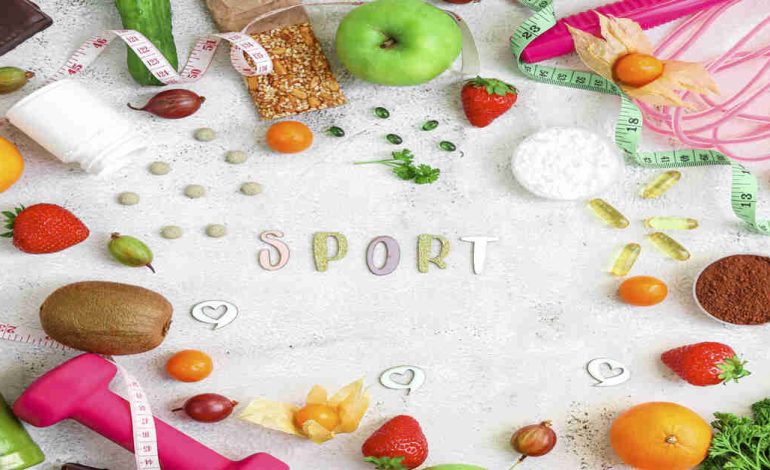
Essentials of Sports Nutrition for Peak Performance
Sports nutrition is the cornerstone of athletic success, providing the essential fuel for energy, muscle repair, and overall health through balanced intake of macronutrients, micronutrients, and timed meals. Whether you’re a professional competitor or weekend warrior, understanding how carbs power endurance, proteins aid recovery, and proper hydration sustains performance can transform your training and results into peak achievements.
Sports nutrition fundamentals are vital to every individual engaged in sporting activities whether on the weekend or at the highest level in competitions. In this blog, I will delve into the fundamentals of sports nutrition, including the impact of sports nutrition on performance, recovery and health in general.
What is Sports Nutrition?
Sports nutrition is the study and application of nutrition with respect to athletic performance. It covers food and drinks intake to maximize the physical performance and recovery and to keep the health in good condition. Athletic nutrition means knowing the impact of various nutrients in the body and how to adjust the intake according to the training, competition, and recovery requirements.
The significance of nutrition in athletes.
Diet is also very important in the performance and healing of a sports person. Proper proportions of the macro and micronutrients may result in better performance, lower injury risk, and short recovery time. The following are some of the reasons why sports nutrition is important:
Fueling Performance: Carbohydrates play the main role of energy source in an athlete. Adequate intake of carbohydrates maintains the level of energy during competitions and training.
Recovery: To boost recovery, it is recommended to have a healthy meal post workout to replace energy stores, mend damaged muscle fibers and curb inflammation. This is particularly significant in cases of athletes who train in the morning, afternoons or several sessions per week.
Injury Prevention: A balanced diet is healthy, enhances the body in terms of immunity, and lowers the chances of injuries caused by overtraining and nutrient deficiencies.
Optimizing Body Composition: Nutrition can be used to optimize body composition in athletes which is important in performance of most sports.
Macronutrients: Sports Nutrition Building Blocks.
It is important to know how to use macronutrients, (carbohydrates, proteins and fats) to the advantage of the performance of an athlete.
Carbohydrates
The body’s major source of energy is carbohydrates and they are used when one is engaged in strenuous exercise. They are accumulated in muscles and liver in the form of glycogen, which can be converted very fast into glucose upon exercise. Carbohydrates are of two major types:
- Simple Carbohydrates:They are sugars that get easily absorbed in the body. These include fruits, honey and dairy products.
- Complex Carbohydrates: This is composed of longer chains of sugar molecules and it digests at a slower pace. Such sources are whole grains, legumes, and vegetables.
Recommended Intake
Depending on the sporting activities and the length of time spent during training, athletes are advised to take between 6-10 grams of carbohydrates per kilogram of body weight per day. Carbohydrates intake before, during and after exercise may aid in the maintenance of energy and optimum performance.
Proteins
Muscle growth, recovery and repair require proteins. They consist of amino acids, some of which are necessary and required to be taken by the diet. Protein is especially essential to athletes who are involved in weight lifting or long distance competitions.
Recommended Intake
The average athlete are supposed to take 1.2 to 2.0 grams of protein per kilogram of body weight per day. This may depend on the kind of sport and endurance athletes may need low end of the scale and the strength athletes may need more. The good sources of proteins are lean meat, poultry, fish, dairy products, legumes, and plant protein sources.
Fats
Fats are an energy source that is very important especially in activities that take a long duration but at low intensity. They are also vital in production of hormones and absorption of nutrients. Fats are of various kinds:
- Saturated Fats: These are animal fats and certain plant fats which should be taken in moderation.
- Unsaturated Fats: They are healthier fats, present in such foods as avocados, nuts, seeds, and olive oil. They are supposed to be the major source of fat.
Recommended Intake
Fats are supposed to take approximately 20-35 percent of the total amount of calories an athlete consumes daily. There is a necessity to pay attention to the healthy ones and to reduce saturated and trans fats.
Micronutrients: The Hidden Workhorse of Sporting Nutrition
Macronutrients are necessary to provide energy and recoveries whereas micronutrients (vitamins and minerals) are critical in different body processes, such as, energy generation, immunity, and bone strength. Sports people are advised to observe their micronutrient amount so that they satisfy the body needs.
The most important Micronutrients in sports
Iron: Necessary in the blood, in carrying oxygen. Athletes, particularly the women and those in endurance sport, should make sure that they obtain sufficient iron through sources such as red meat, beans and fortified cereals.
Calcium: The mineral is vital in the health of the bones and muscles. Good sources include dairy products, leafy greens and fortified plant-based milk.
Vitamin D: Aid in the absorption of calcium and bone density. Vitamin D requirements can be achieved by sun exposure and eating food supplements such as fatty fish and fortified food stuff.
Antioxidants (Vitamins C and E): Assist in the fight against oxidative stress during intense exercise. These vitamins are abundant in fruits, vegetables, nuts and seeds.
Staying Hydrated: The Secret of the Best Performance.
The aspect of hydration is a very important part of sports nutrition which is usually ignored. Dehydration may negatively affect the performance, endurance and the exposure of heat-related illnesses. Hydration should be a priority to the athletes before, during, and after the exercise.
Guidelines for Hydration
Pre-Exercise: Take water all day long and have 16-20 ounces of water or a sports drink two hours prior to exercise.
During Exercise: With exercises that take more than an hour, it would be advisable to take sports drinks rich in carbohydrates and electrolytes to keep the body hydrated and to keep energy levels high.
Post Exercise: Rehydrate using water or electrolyte beverages, in order to replace what was lost during exercise. It is generally a good idea to replace the fluid lost in training by the amount of 16-24 ounces of fluid.
The Timing of Your Eats: Meal Timing Matters
In the case of athletes, nutrition timing is of great importance in performance and recovery. Energy levels and recovery can be maximized by eating adequately spaced meals and snacks.
Pre-Workout Nutrition
A balanced meal that can be eaten 2-3 hours prior to an exercise would be capable of giving the required energy to perform optimally. In order to prevent gastrointestinal discomfort, this meal must be rich in carbohydrates and moderate in protein and low in fats and fiber.
Sample Pre-Workout Meal
- Peanut butter and banana whole grain toast.
- Fruit honey and berried Greek yogurt.
During Workout Nutrition
When the workout takes more than an hour, a good solution is to drink carbohydrates during workouts. This may be in the form of sports drinks, gels or energy bars.
Post-Workout Nutrition
A post exercise meal or snack containing carbohydrates and protein within 30-60 minutes can be beneficial in terms of recovery. This aids in the restoration of glycogen and healing of muscles.
Sample Post-Workout Meal
- Chicken grilled and served with quinoa and steamed vegetables.
- Banana, spinach, and protein powder smoothie.
Sports Nutrition Special Consideration
The approaches to nutrition may have to be customized to meet the needs of different sports and individuals. The following are some of the considerations:
- Endurance Athletes: Can be more dependent on carbohydrate to keep the stores of glycogen and avoid fatigue.
- Strength Athletes: These should pay attention to the protein that is needed to aid in repairing and growing muscles.
- Weight Class Sports: Depending on the need to regulate body weight, yet at the same time maintain performance, athletes in sports that have weight classes ( wrestling, boxing etc.) can have to be cautious of their diet.
- Vegetarian or Vegan Athletes: They should pay extra attention to the sources of protein, iron, and vitamin B12, and they must provide their nutritional requirements using plant-based foods.
Conclusion
It is important that athletes should know the fundamentals of sports nutrition to achieve the best out of their performance, rest, and wellbeing. With an emphasis on the correct proportion of the macronutrients, micronutrients, hydration and timeliness of meals, one can provide his/her body with energy and improve his/her sport performance.
Sports nutrition is not a universal solution and requires the accurate consideration of the personal needs, training requirements and objectives. Through healthy nutrition, athletes will be able to enhance their performance, minimize chances of injuries and have a better lifestyle in general. Regardless of being an experienced player or a beginner to the sporting world, nutrition is one area that you should invest in to realize your dream of being a sporting star.





